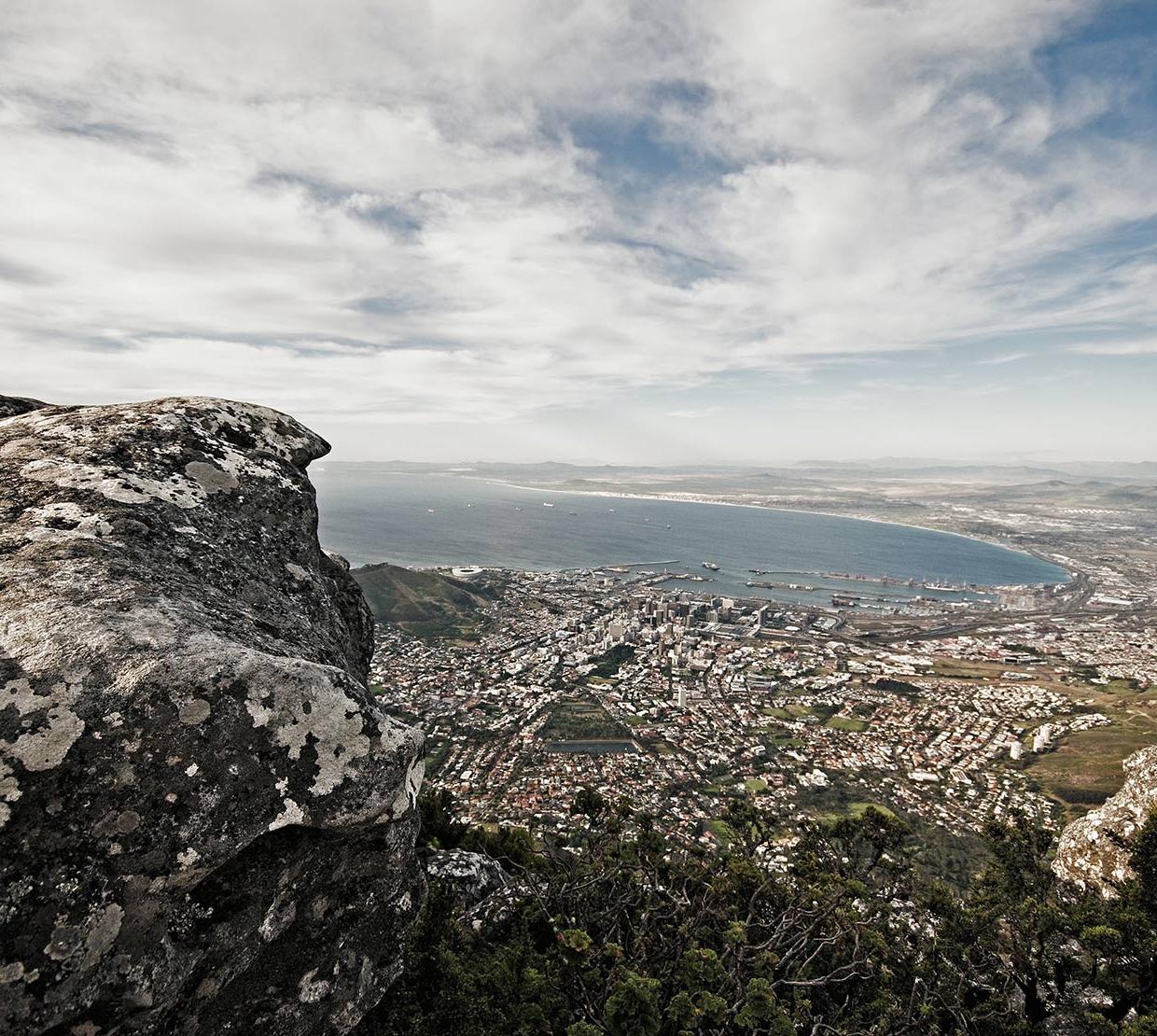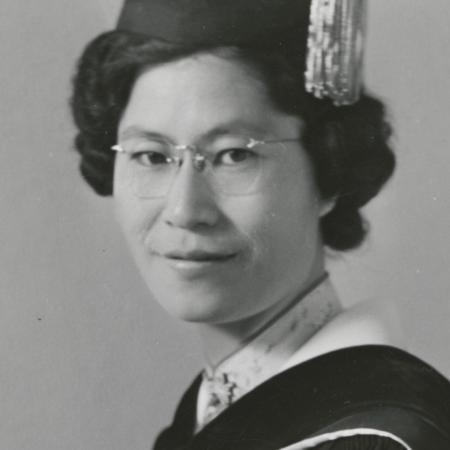Making a difference in Cape Town
Global Leader
Physics alumna Ernesta Meintjes made the South African national news recently when the Body Imaging Centre, which she leads at the University of Cape Town, acquired the continent’s first full body Magnetic Resonance Imaging Scanner (MRI) to be used exclusively for research and for studying diseases like HIV and Fetal Alcohol Syndrome.
Meintjes received her Ph.D. under the direction of professor William Warren from the Department of Physics at OSU in 1998. Currently she is a professor of biomedical engineering at the University of Cape Town where she also holds the South African Research Chair in Brain Imaging.
Meintjes has enjoyed a stellar career following her doctoral studies at OSU. A co-recipient of multiple National Institutes of Health (NIH) grants, she has pioneered the neuroimaging of children with fetal alcohol syndrome and HIV in South Africa for the last decade and has developed novel methods to collect neuroimaging data in children. Meintjes and her collaborators in the United States implemented the first functional MRI studies in Cape Town that have led to research on the auditory neural systems of HIV-afflicted children in the country.
In a new study, Meintjes is focusing on the long-term effects of HIV and antiretroviral therapy on the brains of children through neuroimaging assessments. In another NIH-funded study, Meintjes is examining imaging biomarkers to investigate brain regions and/or functions that are specifically sensitive to prenatal alcohol exposure.
“With MRI there’s no radiation, there’s absolutely no risks, so you can scan someone repeatedly. You can do longitudinal studies to see how disease progresses and in that way you can plan treatment better,” said Meintjes.
A science education for generations
Carolyn Hennig was one of just three girls in her high school to take advanced classes. It was the 1950s and most women from her small town in eastern Oregon did not go to college. The few that did studied education or home economics, which did not appeal to Carolyn.
“Those subjects are fine, but they just would not have challenged me. Science was where I would be challenged,” said Carolyn. “I had an extremely good high school math teacher who took a lot of interest in girls who liked science and really worked with them to get them to college.”
With tremendous determination, Carolyn saw her goals very clearly: study science, become a medical technologist and get a well paying job. After seeing financial struggles firsthand, she knew well the importance of having a good, stable job with good income.
But Carolyn faced the significant challenge and obstacle. She had no money to go to college. Undaunted, she set her mind to finding a way to pay her way through college however she could.
Shortly after arriving on campus, Carolyn knew she had to get a job.
“Most of the jobs for women didn’t pay a high wage at all. The men made much better wages,” explained Carolyn.
“I was lucky to get jobs on campus working with science faculty. I picked up jobs in nearly every science department. When one job ended, I’d get another one. I worked with many scientists and enjoyed the work. I learned so much.”
Carolyn worked in nearly every science department doing everything from lab work, experiments and research to administrative tasks. She found her science jobs stimulating and thoroughly enjoyed the lab work.
Despite her passion for science, Carolyn was astute enough to know that was only part of a good life. You needed to combine an education with a career and the ability to make a good living. But it was 1959 and Carolyn was one of just a few female students in the College of Science. She credits her advisor Dr. Gilmore, a microbiologist, and her medical technology advisor Dr. Pilcher with providing academic and career advice. She settled on a general science major to prepare her for a career as a medical technologist.
Despite her jobs on campus assisting scientists, Carolyn was barely getting by after paying for tuition, room and board.
“I lived on $5 a week,” recalls Carolyn. “I would spend my Saturday mornings at a friend’s house cutting out coupons to get money. In those days, you didn’t even have to buy the food, just turn in the coupons.”
At one point, Carolyn realized she could save much more money for her education if she lived off campus. But university policy did not permit women students to live off campus. Undaunted, Carolyn pleaded her case to the administration and to the dean of the College of Science by sharing her expense calculations.
She was the first woman at OSU to live off campus. When asked how she managed to convince the administration to grant an exception to live office campus, she said “I guess when I showed them the numbers about how I could save money, they saw that it all added up and made sense.”
After attending school full- and part-time for five years based on her fluctuating finances, Carolyn graduated in the class of 1964 and went on to complete her medical technology training at the University of Oregon Medical School, now part of Oregon Health and Science University.
“I wanted a well-rounded education. Broad is better,” said Carolyn. When asked what she would tell today’s science students, she praised the value of an education steeped in art and science.
“It is important to add in electives from a broad area like poetry or art. They make you a better person. Those courses supplement the science and offer a breath of fresh air away from something concentrated and heavy like science.”
Those long years of struggling to pay for her college education have inspired Carolyn to establish an endowed scholarship for students studying science, especially women, to strengthen the foundation for each student's success.
“I want to help students who struggle to pay for a college education like I did,” said Carolyn, who made plans through her estate to help students in who struggle financially to pay for college.
Scholarships are essential in easing the burden of paying for college and allow students to focus on their studies by working less or to take advantage of research or study abroad opportunities. The number of students who need support is growing significantly due to the escalating costs of higher education and the current economic climate.
Carolyn Hennig’s gift has ensured that a science education is accessible for generations of students regardless of their ability to pay. Her generous philanthropy will help the College of Science attract the most promising of the next generation of scientists and truly transform their lives.
Did you know?
Shane Larson (’91, B.S., Physics) was elected an American Physical Society Fellow for his work in public education and outreach. He currently holds a joint position between Northwestern University’s Department of Physics and Astronomy, CIERA and the Adler Planetarium.
Ellie Graeden (’02, B.S., Microbiology, magna cum laude) is founder and CEO of Talus Analytics, a small women-owned business that specializes in translating complex data into actionable information in October 2015. In 2014 she was named a Next Generation Global Health Security Leader by AAAS and in 2013 she was named an Emerging Leader in Biosecurity Fellow by University of Pittsburgh Medical Center’s Center for Health Security.
Heather Leslie (’04, Ph.D., Zoology) has been hired to lead the University of Maine’s Darling Marine Center. Previously she was the Peggy and Henry D. Sharpe Assistant Professor of Environmental Studies and Biology at Brown University. A leading conservation scientist, Leslie’s research is focused on the connections among people and coastal marine ecosystems.




